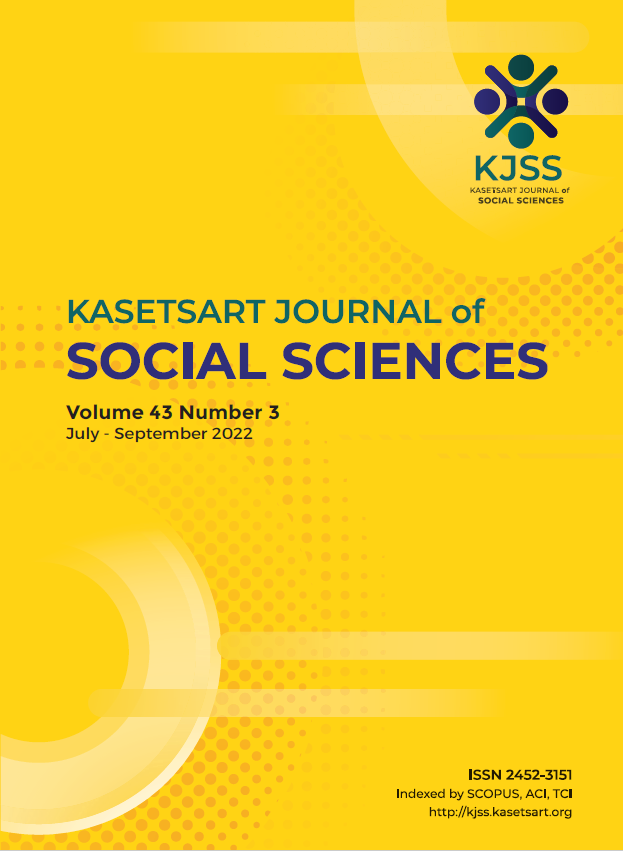Development of a purpose in life scale for Thai adolescents: A mixed-method study
Keywords:
mixed-method, purpose in life, scale development, Thai adolescentAbstract
Purpose in life (PIL) is a crucial component of positive youth development. Understanding and promoting PIL requires a suitable assessment tool. This study aimed to develop and test the validity and reliability of the Purpose in Life Scale for Thai Adolescents (PILTA), to support PIL assessment in non-western countries. The study utilized: (1) item generation among 27 students; (2) scale construction among 540 students; and (3) scale evaluation among 2,466 students. Results showed that the PILTA is appropriate to measure adolescents aged 15–19 in the Thai context. The scale comprised 95 questions, categorized into seven components: (1) connectedness to oneself and others; (2)meaning of life; (3) self-worth; (4) goal orientation; (5) self-belief;(6)determination; and (7) gratitude to oneself and others. The model fit-testshowed that the PILTA had a good fit with the observed data (χ2 = 7.83; df = 9;p = .551; Comparative Fit Index = 1.00; the Goodness of Fit Index = .99; theAdjusted Goodness of Fit Index = .98; the Root Mean Square Error ofApproximation = .000; χ2/df = .87). The Cronbach’s alpha for the scale was .92.The PILTA had a significant positive correlation with the Seeking of NoeticGoals Scale and the PIL scale but had a significant negative correlation with theBeck Hopelessness Scale. The development of country norm measurementshowed a normal T-score ranging from T22 to T67. In conclusion, the PILTA isa culturally sensitive assessment of PIL. It adds an explanation of the “process”of assessing PIL.
Downloads
Published
How to Cite
Issue
Section
License

This work is licensed under a Creative Commons Attribution-NonCommercial-NoDerivatives 4.0 International License.
This is an open access article under the CC BY-NC-ND license http://creativecommons.org/licenses/by-nc-nd/4.0/










